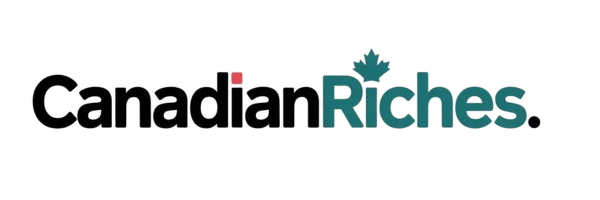Canadian Riches
Archives
I Want to Immigrate to Canada: Your Guide for 2025 Pathways
SIGN UP FOR OUR NEWSLETTER
So, You Want to Immigrate to Canada? Here’s Your 2025 Guide to Making it Happen |
Navigating the path to Canadian residency can feel overwhelming. From Express Entry to Provincial Nominee Programs, we break down the most popular routes, shifting policies, and what you need to know to start your new life in the Great White North. |
The dream of starting a new life in Canada is a powerful one, drawing people from every corner of the globe.
You’re likely asking yourself, “I want to immigrate to Canada, but where do I even begin?”
It’s a journey filled with paperwork, points systems, and policy changes, but with the right information, it is absolutely achievable.
The Canadian government has adjusted its immigration targets for 2025, aiming to welcome 395,000 new permanent residents.
This represents a shift from previous years, reflecting a more managed approach to growth that considers national infrastructure and services.
This change underscores the importance of submitting a strong, well-prepared application.
For many skilled workers, the primary pathway remains the Express Entry system.
Express Entry is not a single program, but an online system that manages applications for three key economic immigration streams: the Federal Skilled Worker Program, the Canadian Experience Class, and the Federal Skilled Trades Program.
Candidates create a profile and are assigned a Comprehensive Ranking System (CRS) score based on factors like age, education, work experience, and language proficiency in English or French.
The higher your CRS score, the better your chances of receiving an Invitation to Apply (ITA) for permanent residence.
Regular draws from the Express Entry pool invite top-scoring candidates to apply, with processing times for many applications impressively swift, often within six to eight months.
Recent draws have included both general rounds and category-specific rounds, targeting candidates with French language proficiency or experience in high-demand sectors like healthcare and skilled trades.
Another vital route to consider is the Provincial Nominee Program (PNP).
This program allows Canada’s provinces and territories to nominate individuals who have the skills and experience needed to contribute to their local economies.
If you have a specific province in mind, like Ontario, British Columbia, or Alberta, the PNP can be a golden ticket.
Receiving a provincial nomination grants you a significant number of additional points toward your Express Entry CRS score, virtually guaranteeing an ITA.
However, it’s important to note that federal government changes have reduced the number of PNP admissions for 2025, making competition in this stream more intense.
Family ties are also a cornerstone of Canadian immigration policy.
The Family Sponsorship program allows Canadian citizens and permanent residents to sponsor their spouse, common-law partner, dependent children, parents, or grandparents to immigrate to Canada.
Processing times for spousal sponsorship can vary, with inland applications taking longer than overseas ones, but the government continues to prioritize family reunification.
For those looking to build a foundation in Canada before seeking permanent residency, the path of an international student is a popular and strategic choice.
To get a Canada study permit, you first need an acceptance letter from a Designated Learning Institution (DLI).
You must also prove you have sufficient funds to cover tuition and living expenses.
After completing your studies, you may be eligible for a Post-Graduation Work Permit (PGWP), which allows you to gain valuable Canadian work experience.
This work experience is a critical asset, as it can significantly boost your eligibility for permanent residency through streams like the Canadian Experience Class.
It's crucial to be aware of recent policy shifts affecting students, including a cap on study permit applications for 2025 and stricter eligibility for spousal open work permits.
Understanding the financial side of your move is non-negotiable.
The cost of living in Canada varies dramatically by city.
Major urban centers like Toronto and Vancouver boast dynamic job markets but also come with the highest housing costs in the nation.
A one-bedroom apartment in downtown Toronto can easily exceed $2,400 per month.
In contrast, cities like Calgary, Edmonton, or Halifax offer a more affordable cost of living while still providing strong job opportunities and vibrant communities for newcomers.
Beyond rent, you must budget for utilities, groceries, transportation, and healthcare until you are covered by a provincial plan.
Application fees themselves add up, with Express Entry costing around $1,325 per applicant, plus additional costs for language tests and educational credential assessments.
The Canadian job market has shown signs of fluctuation recently.
While some sectors like professional services and manufacturing have seen declines, others like construction and healthcare are experiencing growth.
Knowing which occupations are in demand is key.
Registered nurses, software developers, IT professionals, truck drivers, and skilled tradespeople remain highly sought after across the country.
Having experience in one of these fields can significantly improve your immigration prospects, particularly through targeted Express Entry draws or specific PNP streams.
The journey is complex, but millions have successfully navigated it before you.
Canada remains a welcoming country for immigrants, valuing the skills and diversity they bring.
Being thorough with your documentation, strategic about your chosen pathway, and realistic about the costs and timelines will set you on the path to success.
Your Canadian dream is waiting.
Frequently Asked Questions About Immigrating to Canada
What is the fastest way to immigrate to Canada?
Generally, the Express Entry system is the fastest pathway for skilled workers, with some applications processed in as little as six months. Candidates with high CRS scores or those who receive a provincial nomination often see the quickest results.
Do I need a job offer to immigrate to Canada?
Not always. While having a valid job offer can significantly boost your CRS score in the Express Entry system, many successful candidates are invited to apply without one. Programs like the Federal Skilled Worker Program do not require a job offer if you meet the other criteria.
How much money do I need to immigrate to Canada?
The amount of settlement funds required depends on the immigration program and the size of your family. For the Federal Skilled Worker Program, a single applicant needs to show proof of approximately CAD $13,757. This is separate from the application fees and does not apply to those with a valid job offer or who are applying under the Canadian Experience Class. |

